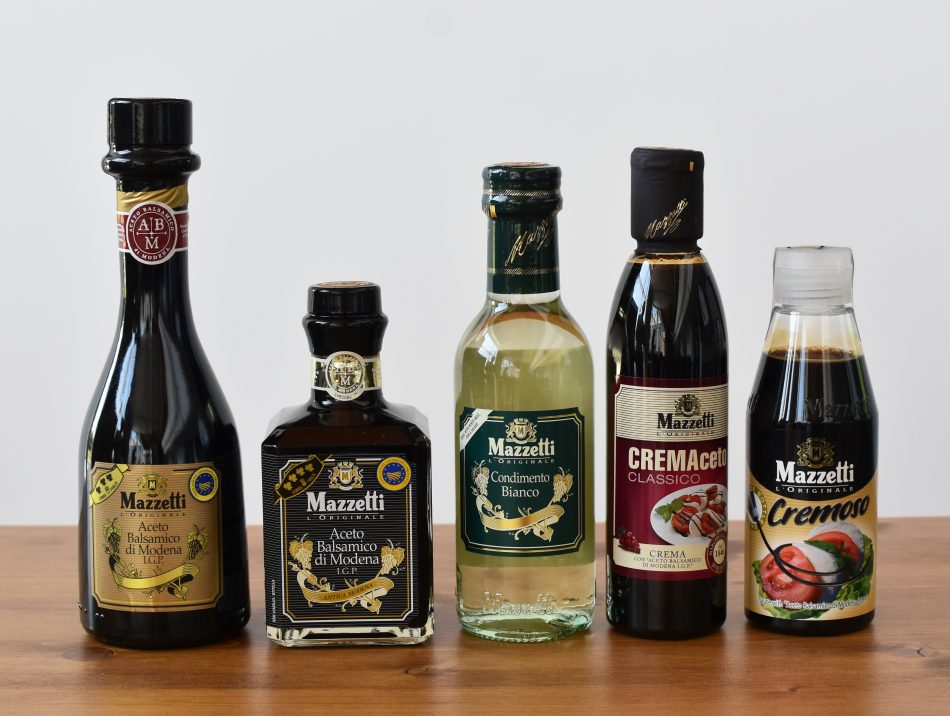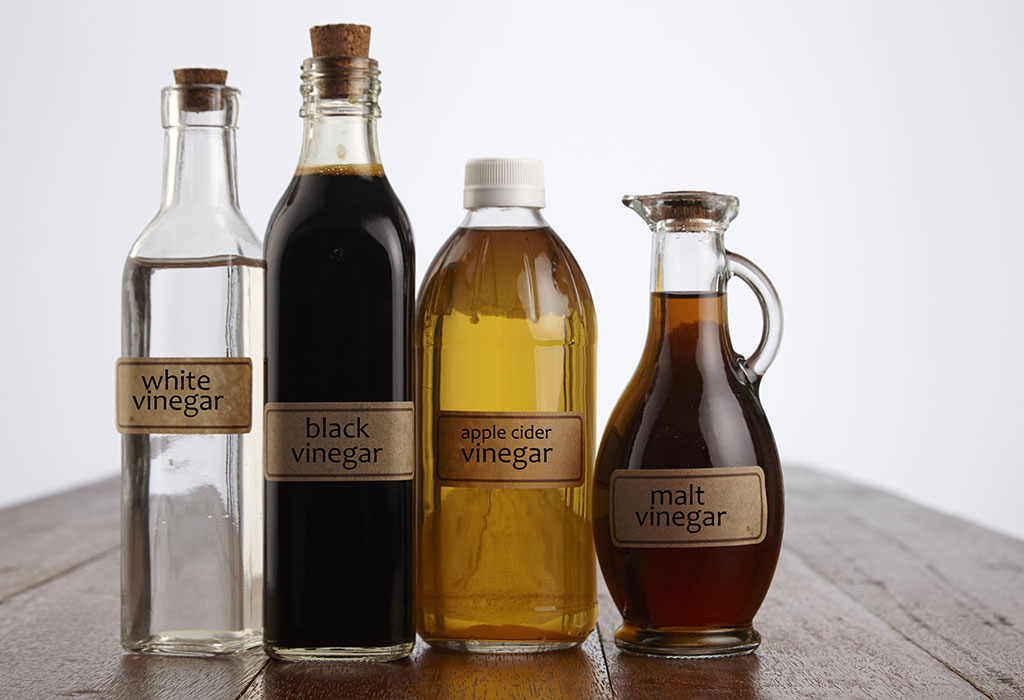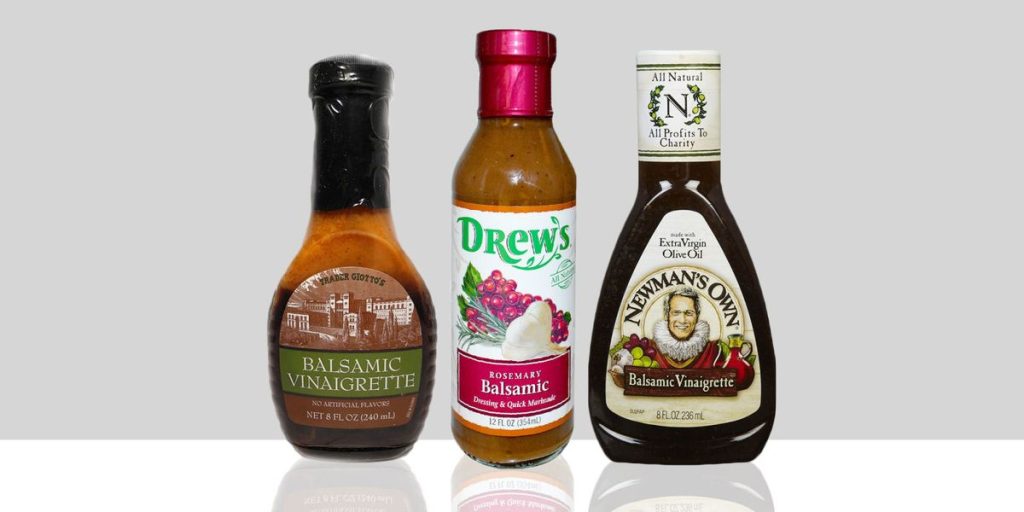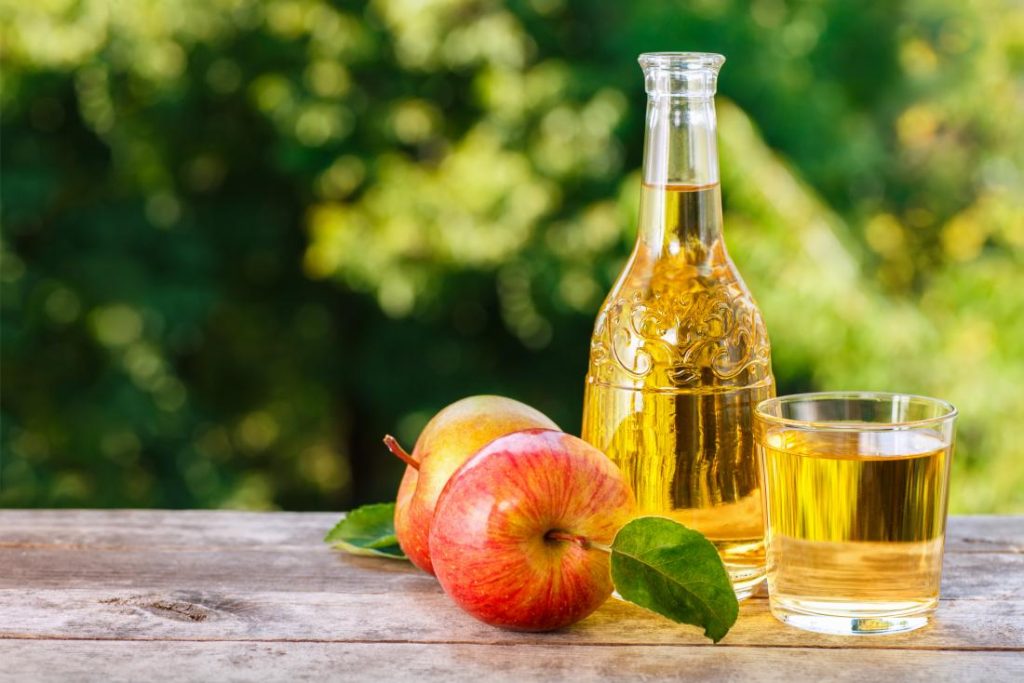Is Balsamic Vinegar Flammable And Combustible?

Balsamic vinegar purchased from a retailer is not flammable. This is because it is mainly constituted of water. When concentrated sufficiently, the component acetic acid, on the other hand, becomes combustible.
This is true for both balsamic and apple cider vinegar.
Vinegar gets its name from the French phrase vin aigre, which translates to “sour wine.” We’ll discuss several varieties of vinegar and whether or not they’re flammable in this post. We’ll also go over how to flambé with vinegar if that’s something you want to do.
Is it possible to flambé with balsamic vinegar?
Balsamic vinegar cannot be ignited. Hence it cannot be used in a flambé. It is impossible to make flambé with anything other than booze. It is possible to achieve a similar flavor by deglazing the cooking pan or pot with balsamic vinegar.
Another French term meaning “flamed” is flambé.
Flambé is the technique of putting liquor into a heated dish, generally a skillet, and causing a short burst of flames. This approach is primarily for display purposes. Remember to keep the dish away from other combustible items when doing this.
Most cooks would warm the alcohol in a pot before pouring it into the flambé pan since cold liquor has a lower risk of catching fire. This is because heated alcohol emits more vapors into the air, resulting in more great flames.
Whether you’re not a fan of booze, you might be wondering if there’s another option. Although the primary objective of flambe is to leave behind the flavor of the alcohol while burning off the majority of the actual liquor, it does not burn off all of the alcohol in a meal.
Balsamic vinegar is a good substitute if you don’t want to use alcohol but still want a Flambé-like flavor. However, this only applies to the flavor of the flambé, not the actual flambé. If you don’t like the taste of alcohol, then flambé isn’t for you. For taste, most flambés are created using brandy or rum.
Is it harmful to heat vinegar?
The most dangerous aspect of heating vinegar is boiling it at a high temperature, which causes the acetic acid to become corrosive and damage the cookware.
Boiling vinegar may be used as a deodorizer in a room.
That being said, only bring the water to a moderate boil, not a rolling boil. You should also avoid mixing vinegar and alcohol together because this can result in unpleasant responses.
It’s vital to note that this only occurs when using vinegar that hasn’t been diluted.
The acetic acid in undiluted vinegar is higher, whereas diluted vinegar is mostly water and fermented wine. The mouth and digestive tract might be harmed by undiluted vinegar.

But don’t worry, store-bought tablespoons of vinegar are fantastic for marinades, sauces, and even pickles!
If you’re afraid about boiling or heating vinegar, just make sure there’s plenty of ventilation and that you keep an eye on what you’re doing. The rule doesn’t simply apply to vinegar.
Always be cautious in the kitchen and never leave your cooked food alone.
Is it possible to heat balsamic vinegar?
Balsamic vinegar may be cooled quickly by mixing it with other dishes in a saucepan or skillet or bringing it to a mild boil to reduce it to make a balsamic glaze.

Have you tried balsamic glaze before? Balsamic vinegar should be heated gently to form a glaze. If you’re just cooking with it, there’s no need to be concerned about losing flavor.
As previously said, balsamic vinegar has a wide range of tastes and should be used sparingly. It’s great for marinating chicken, salad dressing, and steak marinating, among other things.
Is it possible to boil vinegar?
You may boil vinegar to deodorize a room, but you should keep an eye on it while it’s boiling. It should also be gently simmered rather than kept at a full rolling boil after reaching a boil.
As a result, the solution is a little more nuanced. Yes, you can boil vinegar for the most part.
Many individuals believe that boiling vinegar may heal illness. Much as in Chinese tradition, where the steam created by boiling vinegar is said to cleanse the air. This assertion, however, is based on no scientific evidence.
Acetic acid has the ability to destroy microorganisms when it comes into direct touch with them rather than via the air. This is why vinegar may kill staphylococcus aureus, a kind of bacteria that can cause a variety of ailments. Skin issues to life-threatening diseases are examples of mild and straightforward ailments.
While acetic acid can be hazardous to humans in high concentrations, it can also destroy microorganisms. However, as I previously stated, boiling vinegar would not be able to do this.
Acetic acid requires direct contact, which is impossible to obtain through the air due to the flu virus’s absence.
Surface contact is how the flu is transferred, and it can only infect someone when they touch their face. So, for example, you shake hands with a flu patient and then touch your face. It’s all about making direct touch.
Is it true that apple cider vinegar is flammable?
Apple cider vinegar comprises 5% acetic acid and 95% water, making it a noncombustible liquid that will not catch fire. When exposed to temperatures exceeding 102 degrees Fahrenheit, the primary constituent in vinegar, acetic acid, becomes combustible.

Several items should never be mixed with vinegar since they might result from combustible material.
When it comes to cleaning goods around the house, this is frequently the case. Vinegar and bleach are certainly at the top of the list for household cleaning chemicals.
You may assume that combining the two would result in a super-cleaning product, but this is not recommended. When these two cleaning chemicals are combined, chlorine gas is produced. This may not be combustible in and of itself, but it can cause breathing difficulties, burning, and a variety of other issues.
Have I answered all of your questions regarding balsamic vinegar?
Balsamic vinegar is unquestionably the most popular dressing and ingredient in the United States.
We studied balsamic vinegar in this post and apple cider vinegar and regular vinegar.
We discussed whether vinegar could be boiled and heated and if it could be flambéd.
Remember that vinegar is non-flammable in any form. Acetic acid is the only component of vinegar that is explosive on its own. However, vinegar is too dilute to be flammable.











